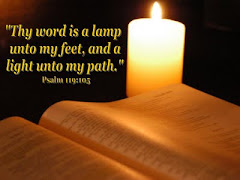
In the
Catholic Answers "Quick Questions" newsletter I receive by e-mail each day, there was an interesting question asked and answer given about the familiar story in
Genesis 11. I don't think I've heard this particular interpretation on the event, so I thought I'd share:
Q: “ What was the sin of the tower of Babel?"
A: A Catholic Commentary on Sacred Scripture explains Genesis 11:1-9 as follows:
The inhabitants of the city started to build a great stage-tower zigguarat, which they raised to some considerable height and then were unable to complete. The massive remains were a visible reminder of the ineffectual attempt which tradition recorded to have been accompanied by discord and consequent migration of many of the population. This meager historical record explains why the sacred writer did not mention the nature of the sin which led to the frustration of the grandiose design. But his deep conviction of God’s overruling government of the world taught him that the attempt had been displeasing to God and the narrative suggests that the sin was one of overweening human pride and self-sufficiency.
The story has been widely understood to tell of a miraculous intervention by which different languages were introduced and the population thus became unable to understand one another. But it must be noted that the different groups among not only the Japhethites and Chamites, 10:5,20, but also among the Semites, 10:31, are already recorded to have had their various languages, and as the two former groups are already out of the story, the origin of languages is not recorded here. Moreover, the word for "languages" is lason which is that used in 10:5, 20, 31. In our passage this word is not found. That used is sapah, "lip," which also signifies "utterance." The natural meaning here is that the people at first in complete harmony "all saying the same thing" fell out among themselves and could not agree upon a common policy; and as a result of the discord (and possibly of fighting) there was a migration. Already in the fourth century St. Gregory of Nyssa was quite emphatic that God did not miraculously impose different languages on mankind. (192-193)
The Jerome Commentary on Genesis 11:1-9 says:
The evil is in their desire to "make a name" for themselves (cf. 12:2) rather than in the attempt to build a tower "with its top in the heavens" . . . Human smallness, not divine impotence, is emphasized in the Lord’s descent (vs. 5). The plural in verse 7 may reflect the concept of God’s royal court, an early idea in Israel. The punishment had been anticipated in verse 4. The name of the city, Babel, is here associated with the Hebrew root bll, "to confound." The great city and its (implied) defeat thus becomes synonymous with man’s revolt against God and its consequences. (17)
For more information about the getting Catholic Answers "Quick Questions," go here.
 To help you prepare for this coming Sunday, here are the readings and reflections for this coming Sunday's Scripture readings. In this Sunday's Gospel Reading, Jesus addresses the Pharisees and all those who "are lovers of wealth" (Luke 16:14) with the story of the Rich Man and Lazarus. This Sunday is the 26th Sunday in Ordinary Time, Cycle C.
To help you prepare for this coming Sunday, here are the readings and reflections for this coming Sunday's Scripture readings. In this Sunday's Gospel Reading, Jesus addresses the Pharisees and all those who "are lovers of wealth" (Luke 16:14) with the story of the Rich Man and Lazarus. This Sunday is the 26th Sunday in Ordinary Time, Cycle C.






